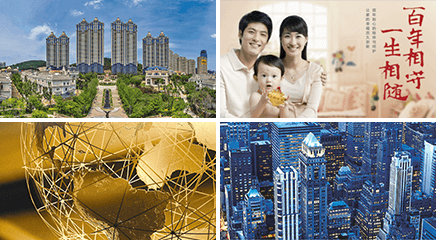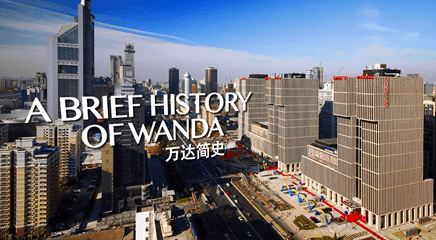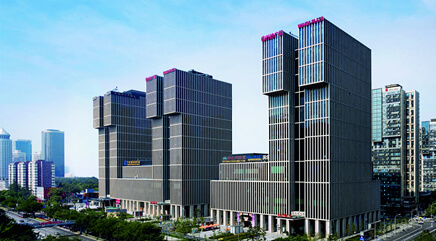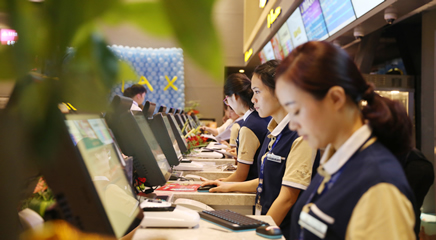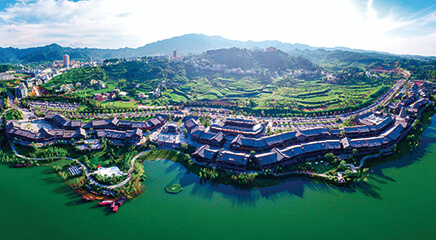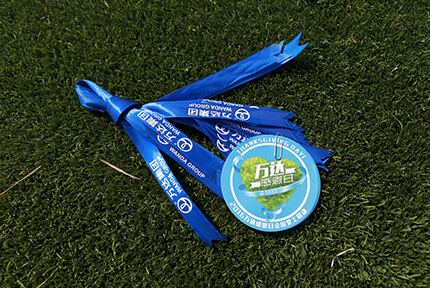Transcript: Wang Jianlin delivers open lecture at Harvard Business School
31.10.2015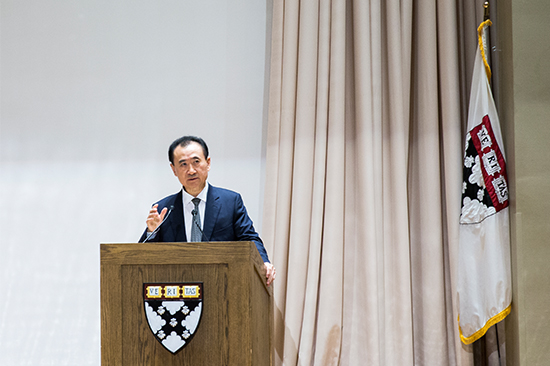 Welcome Address (William Kirby)
Welcome Address (William Kirby)
Welcome all to a special event here at the Harvard Business School. My name is William Kirby. I’m a professor here in HBS and I also chair the university’s China Fund, but what you are here for is an expanded version of Professor Shih and my class – an emerging class, “Going to China”, in January. Professor Shih had initially invited Chairman Wang to come and speak to our intimate class of about 40. Once we made this announcement, a few more people wanted to show up. So just to warn you all, you then have to come with us to China in January for 10 days as we do this.
It’s my job simply to turn this over to my good friend and colleague, Professor Willy Shih, who is the Professor of Management and Practice in Harvard Business School. He is part of the Technology and Operation Management Union. He teaches the MBA and Executive Education programs. He has written more than 125 HBS cases. And before coming to Harvard Business School in 2007, he spent 28 years in industry at IBM, at digital and other firms. He’s a great teacher, a great mobilizer as we can see. He will introduce Chairman Wang, and as we say here at HBS, We can count on Willy.
Introduction (Willy Shih)
Thank you. I’m delighted to welcome all of you here today to hear Chairman Wang Jianlin, Chairman of Dalian Wanda Group. Chairman Wang started his career in the People’s Liberation Army, where he spent 16 years before joining the city government of Dalian.
Wang Jianlin became the Chairman of Dalian Wanda Group in 1985, at age 35. I know a chairman job at age 35 is what most of us here at HBS aspire to. Ok, but he actually did that and I think that’s really quite spectacular.
Now at the time, it was a residential real estate company but under his leadership it became one of the very first shareholding companies in China all the way back in 1992. Since then, the company has become the leader in commercial real estate in China, with Wanda Plazas everywhere. If you’ve ever shopped in a Wanda Plaza, I find it quite remarkable. They always seem to have the best combination of location, retail mix—just great operations.
Chairman Wang is going to make some brief opening remarks, and then he and I will discuss some questions that I want to pose, then we’re going to open that up to the floor for some questions.
It gives me great pleasure to welcome Chairman Wang.
Chairman Wang’s Speech
Because time is limited, I have been advised by Professor Shih to give a short 5-10 minute speech so we have more time for questions and answers.
Harvard is a well-known university for its freedom of academics and thought. So there are no limits when it comes to the Q&A section, feel free to raise any question. Regarding Wanda Group, as Professor Shih said, we have a 27-year history since 1988, and in one more month this year will be over. In 2015, I estimate that Wanda’s asset will exceed US$100 billion and annual income will be around US$50 billion. Net profit and other core financial metrics will rank top among Chinese private companies.
We have three main businesses—commercial properties, cultural industry and corporate finance. Our development can be described in four stages. The first was in 1993, when we went outside Dalian and into the rest of the country, transforming from a regional company to a national company. This was a key step for us. At that time, people who didn’t do business in China were not able to understand us. You couldn’t get a license to work outside Dalian so you had to be affiliated to other companies to do business. However, I said that nothing is impossible if we keep an adventurous spirit.
From this critical step, our second stage was to transform Wanda from a pure housing company to a real estate company that holds properties. In the past 20 years or so we’ve started to change and from the year 2000 our real estate subsidiary has become number one in the world. We have become very huge in this industry, and we continue to grow. Nevertheless, we’ve started another transformation in 2015. From now on we will no longer hold any properties and gradually we will transition into an “asset-light” model, but that is a whole other story.
Since 2006, we underwent our third transformation. From a real estate company we became a comprehensive company, entering the cultural and tourism industries. In the past 10 years, Wanda’s cultural industry has become the largest in China. To put that into context, the revenue from Wanda’s cultural industry will exceed over RMB50 billion. Of course, this is not comparable with the United States where there are many companies worth $10 billion. Not only are we number one in our region, but our worth exceeds that of the combined assets of the following nine companies in China. However, you should also know that there won’t be a company worth US$100 billion in the cultural industry, or an annual income of US$50 billion or $100 billion. Though the cultural industry has a huge influence, the largest company in the world may reach over US$30 billion in revenue.
Now we are experiencing the fourth transformation since 2012. We are going global. We had this idea very early, around six or seven years ago. Before then we were not so ambitious—not until we purchased AMC in the US. In just three and a half short years we have invested over US$15 billion overseas. This year, our revenue from overseas business will reach 15% of our total revenue. We have also set a strategic target: by the year 2020, to grow our total assets and to be a public company worth over US$200 billion, our annual revenue will be US$100 billion within five years, and our net profits will reach over $10 billion. Of this $100 billion annual revenue, our revenue from overseas business will make up at least 30% of that total. This fourth transformation is the deepest transformation—from a Chinese company to not only an international company but also a top one. We will try hard to make Wanda a spokesperson for Chinese companies going abroad.
For example, we are trying to build our hotel brand right now. Of all luxury hotels in the world, none of them are Chinese, with the exception perhaps for Malaysian Robert Kuok who is ethnically Chinese. The biggest luxury item in the world is actually hotels, followed by yachts and airplanes. Bags and cloths, as luxury goods, are overstated. Can you say that expensive belts are luxury? They are high-end products, but they are not a luxury.
Wanda owns a lot of hotels. By the end of the year we will have around 100 five-star hotels, and around 100 additional hotels under construction. We decided to work with our own resources to establish our brands, because hotel brands will take more than 10 to 20 years to establish. So far we have hotels in seven landmark cities, such as London, Sydney and Madrid. We also have hotels in three major cities in the US. All of them are located in the heart of the city. For example, our hotel in Chicago is in Millennium Park, just across the river. In New York we are on 5th Avenue, and our Los Angeles hotel is at the top of Beverly Hills.
We are building our luxury hotel brand, and this is just one side of our globalization strategy. Of course, we don’t rely primarily on hotels. Generally speaking, although Wanda has been afforded a certain wealth and scale, we have not stopped to gain more wealth. We are not for personal consumption; my goal is to build Wanda into a hyperpow
